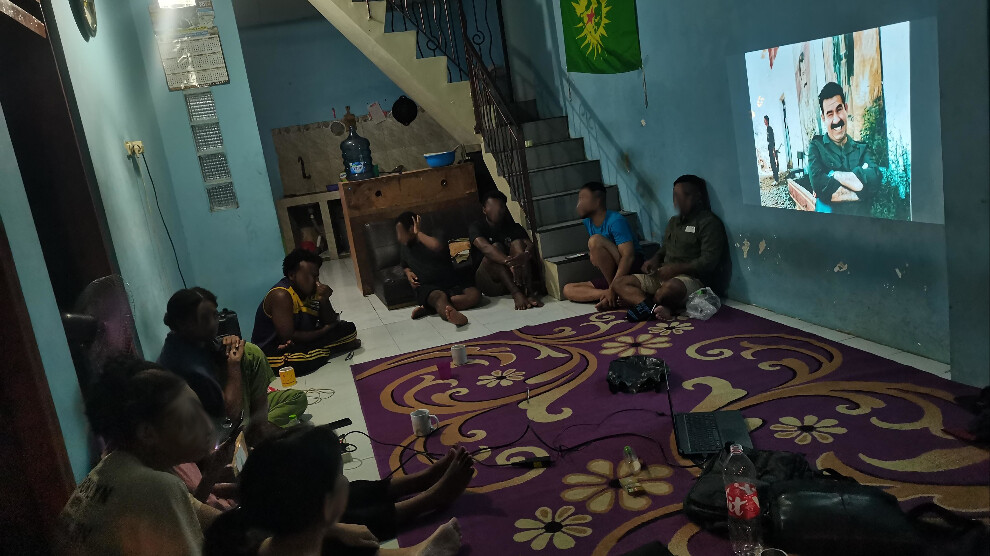‘Dialogue with Öcalan’ event in Indonesia
Within the framework of the Days of Dialogue with Öcalan, activists discussed Öcalan’s ideas and Jineolojî, women’s science, in Jakarta, Indonesia.
Within the framework of the Days of Dialogue with Öcalan, activists discussed Öcalan’s ideas and Jineolojî, women’s science, in Jakarta, Indonesia.

An event was organized in Indonesia on the 22th of June as part of the global campaign "Dialogues with Öcalan" promoted by the Freedom for Abdullah Öcalan Campaign Committee.
Initiated by the collective KMP2 (Young Papuans Progressive), a film screening of some Jineolojî videos was organized in Jakarta, Indonesia on June 22 with the participation of ABC+ Kontrol (anti-capitalist organization). The event was followed by intense discussions on women’s liberation, women’s role and struggle in Papuan culture. The participants also discussed the topic of capitalist modernity and its impact on the struggle for liberation in Indonesia and Papua.
“From Jineology there is one important thing that we have to mark: the need for democratic consciousness, because even if we are in power, it will only create new oppression and we will fail to have equal and free values. A social system must be based on the needs of each diverse group, the state must be presented based on the needs of the people. The role of the state must be marked by a democratic structure from the bottom up. In Papua itself, there is already a democratic social structure, where the role of women is more dominant, but today's Capitalist Modernity has destroyed it, contradictions continue to be born, and the real problem is social engineering that is conditioned,” said Rudy, KMP2 member.
As Papuan militants, the activists called for a re-appropriation of their own history and critical view on colonial forms of knowledge.
“We must remember that there are still some women survivors from some of the bloody genocides of the Papuans, and they are still fighting! Our science must be in control, for our benefit, but not to serve the oppressive state power. We must build the next generation, build a smart and educated women's front, start rewriting our memories. We must criticize all the knowledge that is trying to penetrate us,” said Aten, a KMP2 member.
The activists also stated that in regard to the perspectives presented by Jineolojî, discussions should be held on women’s participation in the armed liberation struggle.
“I'm surprised that Jineolojî has taken root. It's so unique, it's like a living oasis, very much against the background of what we know so far. The role of women in the struggle is still secondary [in Papua]. Physical factors are still seen making it impossible for Papuan women to take on the role of guerrillas. But we must discuss this together in the future so that all the burden is not only on the shoulders of men.”
Bone, member of ABC+ Kontrol, concluded: “We must see Öcalan's ideology as something that is not dogmatic, but rather offers ideas that can continue to be developed anywhere, including in Indonesia and Papua. It is important, as he says in his critique of positivism, that we have our own values... Jineolojî offers us a foundation that is clearer than western feminism so far, because Jineolojî is not static.”